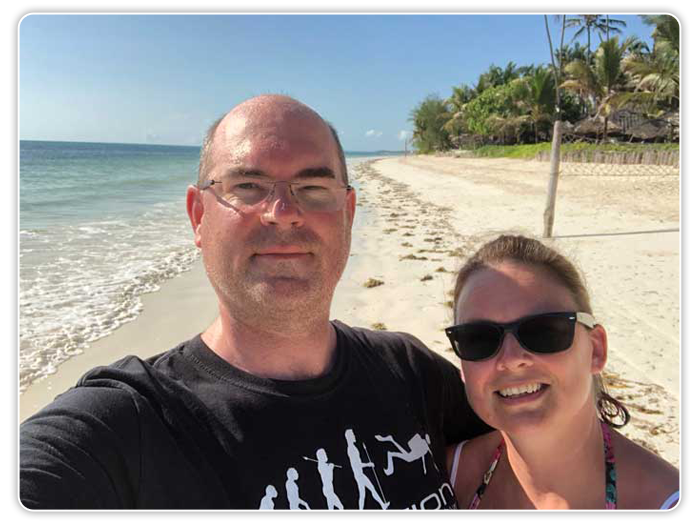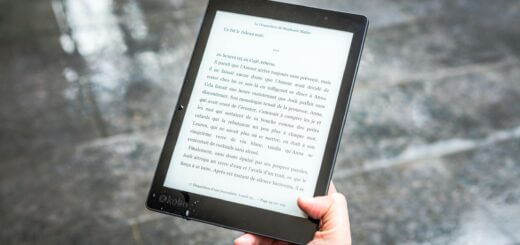12 Proven Email Copywriting Templates Guaranteed to Get Clicks
This is the part where I tell you that email is not dead. Why we have to keep saying that, I don’t know, but it seems like we do.
Nearly everyone has an email address. In fact, 92% of US adults use email. What the other 8% are doing, I don’t know, but I’m guessing they’re either over 80 or living in a cabin with Bigfoot, that big hairy gorilla guy who periodically pops up on the radar in the American Northwest.
And yes, other marketing channels like YouTube, SMS, Facebook marketing and so forth on are on the rise and they’re all avenues you might consider. But email is the ONE avenue where you get to speak directly to your subscriber on a one-to-one basis in the privacy of their inbox.
That is why email is still one of the most effective and personalized ways for you to communicate with your audience. And it’s almost always the most cost-effective way, too, with the highest return on investment.
The one downside to email is that deliverability is getting harder, thanks to tighter restrictions put in place to deal with phishing scams and clickbait. And that darn exiled Nigerian Prince didn’t help matters, either.
But if you flip tighter restrictions on its head and realize it can be an opportunity for those who do play by the rules, you’ll see that email is an amazing tool to authentically market yourself, your brand and your products and services.
The key is to send hyper-relevant emails to the right people – which means proper list targeting. For example, don’t send a string of emails to your social media marketing students about a new business opportunity that has nothing to do with social media. Know what each of your lists want to receive from you, act accordingly and you’ll do fine.
Which brings up an excellent point… before you can send the right emails to the right list(s), you’ve got to WRITE those emails. And as Shakespeare would say, “There’s the rub.”
You start building a list. You get all excited… 5 subscribers! 10 subscribers! OMG 50 SUBSCRIBERS!
And then it hits you.
You have to WRITE emails to do email marketing.
Wouldn’t it be great if you had several templates you could use to help you with this process?
Yeah, I thought so, too.
That’s why today I’m giving you not just 1 or 2, but 12 different proven templates that work like gangbusters to get the clicks, regardless of what niche you’re in or what you’re promoting.
And that’s what email is for – getting your subscriber to click that link and move to the next step you want them to take, whatever that step might be.
These templates appear in no particular order.
Email #1 – The Welcome Email (And Reactivation Email, too)
When someone gives you their email address, you want them to feel welcome and happy they subscribed.
This is where you turn that new subscriber into a reader, so that you can then turn them into a customer.
“Thanks for subscribing” does not cut it, because you need to do more than that.
Make your new subscriber feel like they are part of your tribe, that they’re special for being on the inside of your group and give them a taste of what’s to come.
And here’s a little email trick you might not have thought of…
The Reactivation Variation
What happens when your subscribers stop opening your emails? They forget you even exist.
But what if you send them a NEW welcome email? They are likely to think they just signed up to something and so they open it.
Inside the email you remind them that you already have a relationship or they are already in your tribe. You remind them of the benefits of being in your group of insiders. And then you give them a list of enticing bullets, letting them know what’s coming in the next few days and weeks.
This is a marvelous way to reactivate subscribers who are no longer opening your emails. It gets them interested and excited once more, much like they had just joined your list.
The Welcome Email Template:
- I am so glad you’re here!
- You are now part of this tribe, and here’s what that means for you
- In the following days, you will receive (list benefits, secrets, tips, etc.) Use enticing bullet points that makes them eager to open your next email.
Email #2 – The Short and Fast Click
Just as its name implies, this can be an incredibly short email that is all about ONE thing – getting the click.
To pull this off, you need to build curiosity and open a loop in your reader’s mind. Make them want to know what’s on the other side of that link so that they MUST click the link to find out.
Make no mistake – while this is the shortest email, it can take as much time to write as any of the longer emails. That’s because it’s absolutely VITAL that every word counts, from the subject line to the link itself.
Your goal is to pack a big punch in just a few words. Think of someone on their cell phone with distractions – how do you grab their attention and get them to click fast?
First, this works best if you have already established some rapport with them. Imagine your best friend sending you an email that basically says, “Dude, you gotta see this weird car!” You’d click that, right?
Second, use a subject line that gets the open. This is true for any email, of course. If they don’t open the email, they can’t click the link. And if the subject line sucks, they won’t open the email.
Third, make your email super short and to the point, being sure to use curiosity.
Here are examples:
Niche: Online marketing, targeting unresponsive list
Subject Line: Are you still interested in making videos?
Email: This ugly video took 5 minutes to make and garnered 54,693 views in one week. <<LINK>>
Niche: Adult ADHD
Subject Line: Did my weirdo cat just cure my ADHD?
Email: I was super shocked when my cat dropped THIS in my lap… <<LINK>>
Niche: Gardening
Subject Line: Giant octopus-looking insect in my garden
Email: Here’s a video of it running across my arm and scaring the crap out of me! <<LINK>>
The Short and Fast Click Template:
- Curiosity building subject line
- Open loop email, usually just one sentence but can be a bit longer.
- Link
(I know, this one seems almost too easy – try it out for yourself)
Email #3 – The Objection Story
People have objections you need to overcome.
And people love stories.
Hence, the Objection Story.
This email could also serve as the beginning of your sales letter. You tell a story – preferably your own story, but it could be someone else’s – that is believable, relatable and adds value.
For example, let’s say you’re selling a body building product. You can tell the story about how you were skinny as a rail. Nothing worked. You tried all these different types of exercise, nutritional formulas and body building secrets, and yet you were still skinny. You felt hopeless. The gals never paid any attention to you. The guys bullied you and locked you in a school locker. You were ready to give up. And then “It” happened.
“It” is your product or information. You thought it was total crap, but you gave it a try anyway. You saw a little success, so you dove in head-first and totally went for it.
Now you look like a different man, the sort of man women chase, and…
You get the idea.
The main objection to a body building product is people won’t believe it works or it’s too difficult. But through your story, you demonstrate that even you, the skinniest guy in your class, were able to become a body building king.
You’re going to notice a difference in conversions between this email and the Short and Fast Click email.
Short and Fast will get you more clicks, but fewer of those will convert on the other side.
With the Objection Story email, you’re going to get fewer clicks but a much larger percentage will convert. That’s because you’ve done a lot of the heavy lifting in this email, priming them for the product or service you’re about to reveal once they click the link.
They’re already half sold because their objections have been answered in a believable, trust-worthy manner.
One note: Don’t become long winded here just for the sake of writing a long email. Every word still counts. If there is any place in your email that drags, this is where you will lose them.
The Objection Story Template:
- List the major objections to your product or service
- Then write your personal story that overcomes these objections
- If you don’t have a story of your own, borrow a customer’s story
- Not. Be. Boring.
- Remember your link
Email #4 – The Product Update
This one is written for your true fans and group insiders. You should have a deep understanding of what your fans and customers want and why it’s important to them.
The whole idea here is to encourage them to take action.
Think of product updates as fuel for fires that are already burning.
Amelia is interested in your product. She’s not ready to buy it because she’s still researching or thinking. Your product update pushes her closer to making that decision to purchase.
Joe likes your product. He’s thought about buying it, but he hasn’t taken the leap yet. You send out a product update that pushes him over the edge and gets him to buy.
And you don’t actually need a new product feature or update to send this email.
Product updates can be as simple as, “Hey, I’ll bet you didn’t know our product also does XYZ for you and gets this result.”
If one of your customers tells you they are using your product in a way you hadn’t even thought about, tell your subscribers in a product update.
If you normally stress that your product helps to get rid of wrinkles, do a product update showing that your product also brightens skin and gives it a youthful glow.
Of course, any time you actually do update your product, be sure to send out an email letting your readers know.
The Product Update Template:
- Give the benefit of the new feature or new use in the subject line or first sentence
- Reveal how it works in easy steps
- Step 1
- Step 2
- Step 3
- #1 tip or thing they need to know
- Incentive or reason to grab the product right now
Email #5 – The Cliffhanger
The premise is simple – end your email at a point where the reader is left intrigued and in suspense, wanting to know WHAT HAPPENS NEXT?
This creates an open loop in their mind that won’t be satisfied until they read your next email or click the link (your choice).
This is storytelling at its finest, putting the hero of the story in some sort of precarious situation and then leaving them there – essentially leaving them dangling off a cliff until your next installment.
Cliffhangers are abrupt and surprising to shock the reader. But they should be resolved fairly soon in your next email to avoid irritating or annoying your reader. They already waited an entire day to find out what happened next. Besides, you’re (hopefully) going to end this next email with another cliffhanger, right?
Your cliffhangers will be problems or setbacks the hero must get through. And they should also evolve naturally into your story. Create problems your readers care about and you’ll hook them into reading your emails the moment they see them.
Examples of how this might work in your emails:
Niche: Internet Marketing Instruction
You describe a crazy idea you had for a product. You outline the idea and then send it to your friend who is a 7-figure earner to get her opinion. She calls you on the phone screaming that she’s calling the police…
The next day you reveal why she was calling the police and what happened. Then you reveal that to finish your product you need the help of a certain recluse genius who is impossible to contact. Luckily he lives near you, so you track down his compound in the middle of nowhere, infiltrate his security (climb over the fence) and make it to the front door. But when the door opens you find a shotgun pointed at your head…
You get the idea. The point is your email ends in a cliffhanger that needs to be resolved in the next email. Why is your friend calling the police? Who had a shotgun to your head, and what happened next?
Make your reader care about the hero or the cause, and then threaten it. Remember, if everything goes well, it’s a boring story. Impossible time crunches, something standing in the way and misdirection are all tools you can use.
You might need to get a little creative at times to locate the cliffhangers, but I assure you that any good story will have several.
The Cliffhanger Template:
- Tell a story from your life or from someone else’s life.
- Find the roadblocks, obstacles and problems your hero has to overcome.
- Use these as your cliffhangers, stopping just as you get to the surprising or shocking part.
Email #6 – The Blog Update Email
You do have a blog, right? And you’re making sure your list members stay fully engaged with your content by sending them an email each time you update your blog – right?
I only ask because the vast majority of marketers forget to do this, and yet it’s a super simple way to keep your subscribers interested, get more eyes on your posts, show your subscribers that you’re the expert with solutions, and even get some social media play if your subscribers share your posts with their followers.
If you’re not sure what to blog about, there are tons of examples online. My favorites include:
- Offering your opinion on relevant, current news
- Sharing success stories from your customers including tips
- Giving excellent ‘how-to’ instruction that happens to include your solution
- Roundtable posts that include other experts in your niche
The Blog Update Template:
- Headline from your blogpost
- An image from the post
- Bullet points on what they will discover in the post
- Call to action to read the post immediately
- A P.S. that includes popular post links, just in case this particular post doesn’t resonate with them.
Email #7 – The Black Friday Email
Contrary to its name, you can use this any time you want to have a sale or special offer.
Basically, you’re telling them what they’ll get and why they need to buy it right now.
This is the go-to email for brick and mortar businesses that don’t know anything more about marketing than to have a sale.
But it also works for more sophisticated marketers any time you need a quick influx of cash.
You might put your product(s) on sale, bundle several products together to create a fire sale, or sell a year’s access to your monthly membership for a discounted price.
You might even offer a limited time extra special bonus to go with one of your products, such as 60 minutes of free one-on-one coaching to go with your $199 course.
This email works best when your readers know you, like you and trust you. It doesn’t work as well to a cold list because it can come across as too salesy or even spammy (be careful here).
The Black Friday Email Template
- Here’s the special deal (present your offer and your price)
- Here’s why you’re having the sale (give them a reason why there is a discount or a special)
- Here’s why you need to buy it NOW (scarcity – give a deadline or a limit on quantity)
- The Link
Email #8: Please Review Us Email
The more reviews you have, the easier it is to make future sales (Assuming, of course, that your reviews are positive. I didn’t really need to say that, did I?)
The right review can make a sale but getting reviews doesn’t happen automatically; you’ve got to ask for them.
Be totally upfront about asking for a review. Encourage participation by offering something. And make it super easy to leave a review. Making them jump through hoops isn’t going to work. It’s got to be one click easy – click the link in the email, leave the review.
The Review Email Template
- Thank them for their purchase (this also reminds them of the purchase, just in case they forgot).
- Give them an incentive for leaving a review, such as entry into a drawing for a big prize.
- Give them a strong call to action to click the link and leave the review, letting them know it will only take 60 seconds.
- Provide your customer service information or at least an FAQ link, letting them know that if they have any questions about the product or need help, to please contact you. This is to dissuade unhappy people from leaving you a bad review.
Email #9: Recovering the Sale – Abandoned Cart Email
Business Insider tells us that $2.75 trillion of lost ecommerce is recoverable.
And one of the best ways to recover the business is to send an email when your customer abandons their cart.
If you’re skeptical that this works, think about all the times you added something to your cart and then got distracted. It happens. You really did intend to order, but then life got in the way. And all it would take to get you back to the cart is a reminder of why you wanted that item to begin with.
If you sell lots of different products, then you’ll have to use more generic emails such as, “All is not lost. We’ve saved your basket for you. Click this link to complete your order.”
But if you only have a few products, you can get more specific, like this: “Did you forget something? You indicated you want to double your business in the next 30 days by increasing your traffic and your conversion rates. You chose XYZ product to do exactly that for you because it’s been rated best on the market for 3 years running. Now all that is left is to claim your 24-hour discount and finish your check out so that we can start growing your business and your profits today.”
The Abandoned Cart Email Template
- An appropriate headline, such as:
- Did you forget something?
- You left something behind.
- Not all is lost.
- Whoops! We saved this for you.
- Product description(s) and image(s)
- If possible, benefits of owning the product
- If applicable, discount deadline or other scarcity
- Call to action
- S. A reminder of why your company and/or customer service and/or product totally rocks
Email #10: The “I’m Human” Email
This email can take many forms, but the essence is to show your subscribers that you are in fact a real person and not some faceless Internet entity.
You might share the lesson you learned from an especially bad day or difficult experience.
You might talk about a personal victory, like your first jump out of an airplane or the birth of your daughter.
You might share your worries, fears, hopes, dreams…
The possibilities are endless, but a word of caution: You’re not sending this email out to get free therapy from your readers. You’re sending it to show them that you are real, so keep that in mind.
Don’t ramble, do keep it interesting and do not paint yourself as a hero. Show your vulnerability.
And whatever you talk about, relate it back to your reader and their own hopes, dreams and goals.
Even when emails seem like they are about you, they are still really about your readers.
The I’m Human Email Template:
- Use a subject line that is personal, not business-like. Use, “My brother-in-law bet me I wouldn’t jump out of a plane today,” not “10 Reasons to Go Skydiving”.
- Draw the reader into the conversation. Instead of, “My brother-in-law is one of those macho guys who isn’t afraid of anything…” Say, “Have you ever known someone who didn’t seem to be afraid of anything? You know the type, ready to do anything on a dare.”
- Do not be the hero, even if the story is about you succeeding. Find a way to make the reader the hero. Instead of bragging about how you jumped, talk about how terrified you felt, how you almost didn’t do it and acknowledge that your reader would almost certainly have been far braver than you in the same situation.
- Bring your story back to your reader’s interests, desires and goals. “Today was a stark reminder to me of just how scary life can be. Even simple things like growing your business can be scary. And that’s why I’m going to something I’ve never done before: I’m going to remove 100% of the risk of trying our software by giving you a special pass to try it for free for 90 days. Because I never want you to be afraid to succeed and build the business of your dreams.”
NOTE: You don’t have to make an offer with the “I’m human” email if it doesn’t feel right. Just be sure to relate your story back to the reason they subscribed to your list in order to keep it relevant for them.
You might even invite them to share their own story with you and give them something special if they do.
Email #11: The Troll Email
This one is counter-intuitive but it’s also amazingly effective.
Sooner or later you will be trolled by someone who hates you, hates your product and generally hates everything.
You can send out the troll message along with your thoughts, and you’ll be surprised how your tribe rallies around you. This type of email can get more response than you’d expect and 99% of it will be positive. It can actually be something of an ego booster.
The Troll Email Template:
- Start with the worst thing the troll said.
- Then explain that this is a message you received and how you received it (email, FB, etc.)
- Put in as much of the message as you choose.
- Give your thoughts about the message.
- Thank your readers for being kind, caring people and not dumb trolls, or some such.
Email #12: The “I Goofed Up” Email
Sooner or later, no matter how hard you try, you’re going to have a disgruntled customer with a legitimate complaint. It’s inevitable that you cannot please everyone all the time, and it’s also a fact that you are human and humans make mistakes.
That’s okay. It’s what you do next that’s important.
Immediately fix the mistake and make it 110% better. You not only want to make the customer whole, you also want to go above and beyond in some meaningful way.
Then once the customer is super happy and satisfied, go ahead and tell your readers about your bone-headed goof up along with how you went the extra kilometer to satisfy that customer. Your readers will be impressed by your honesty and integrity and relieved to hear that you fix your mistakes.
This sort of email can earn both trust and business, yet almost everyone is afraid to send them for fear they’ll look less than super-human. Guess what – your customers already know that sooner or later you make mistakes just like they do. But when you admit it and show how you fix those mistakes, you earn their respect.
The I-Made-A-Mistake Email Template:
- Start off with saying you made a mistake or you blew it.
- Explain what happened and why it went wrong.
- Tell how you fixed it and quote your happy customer.
- Explain the measures you’ve put in place to see it doesn’t happen again.
You can use these templates any time and in most any order, depending on your goals and even on what you feel like writing that day.
A few last thoughts:
Never be long-winded if you can say the same thing in fewer words.
Always keep it interesting, never boring.
Write as you speak to avoid confusing the reader.
Have someone read your emails out loud prior to sending them, so they can pinpoint anything that isn’t making sense.
Stop worrying that someone on your list won’t like what you write. That’s what unsubscribe buttons are for.
Stop worrying that people will unsubscribe. You’re looking for your tribe, those folks who want to hear from you. They’re the ones who will continue to open your emails and buy your products. The others don’t belong on your list anyway.
When subscribers write to you, answer them. They’ll be surprised and pleased, and they’ll keep reading your emails.
And have fun.
What This Guy Stumbled Across By Accident Nearly TWENTY YEARS AGO Is Anything But Average.

It's Still Banking Him $25,000 - $35,000 EVERY SINGLE MONTH!
Privacy Policy: We value your privacy. You can unsubscribe from receiving future emails with 1 click at any time.

















